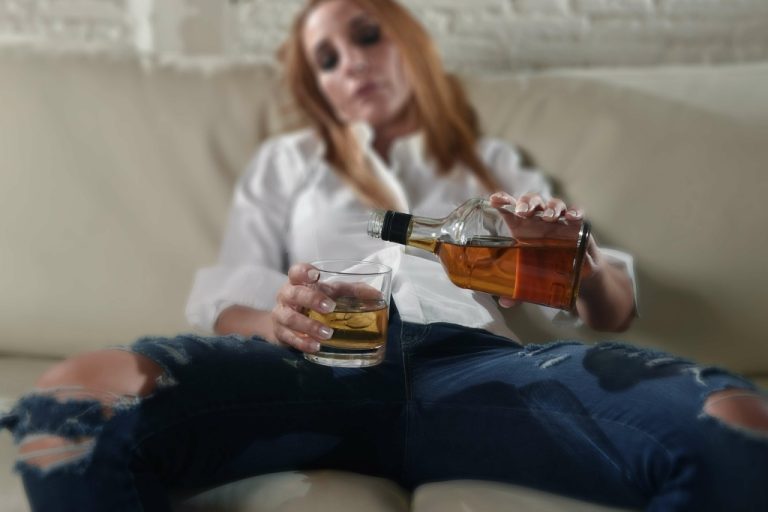So, in the context of alcohol addiction, recovering alcoholics tend to subconsciously turn to “rewarding” substances like sugar. As withdrawal symptoms from alcohol abstinence come into effect, the brain seeks euphoria elsewhere. https://metalarea.ru/metalcore/ In some ways, this may seem like a coping mechanism, but in many regards, it can simply be an addiction transfer. In addition, alcohol addiction comes with an array of underlying psychological effects and foundations.
Happiness: The Truth About Drugs That Promise Joy
- However, this is often followed by a sudden drop in blood sugar levels as the body works to metabolize and eliminate alcohol from the system.
- When alcohol is removed from the equation, the body may crave sugar to help stabilize blood sugar levels, creating a cycle of sugar cravings among recovering alcoholics.
- Recovering alcoholics often experience intense cravings for sugar, and understanding the factors that contribute to these cravings can shed light on this phenomenon.
- Chronic alcohol abuse can lead to imbalances in neurotransmitter levels, particularly those involved in mood regulation and cravings.
The impact of sugar on the brain, particularly in individuals with alcohol use disorder, highlights the complex nature of addiction and the potential for sugar cravings to replace alcohol cravings. By understanding the underlying mechanisms at play, individuals in recovery can make informed decisions and develop strategies to manage their sugar cravings effectively. The body’s dependence on alcohol for a steady supply of glucose can contribute to the intense cravings for sugar during the recovery process.
- Of course, addressing your triggers at the source can also go a long way toward helping you make lasting changes.
- Addressing these underlying issues is crucial for effectively managing sugar cravings.
- Explore why residential treatment centers aren’t always possible for recovery and discover alternatives.
- To answer the question, “why do alcoholics crave sugar?”, it’s important to delve into the physiological and biochemical factors at play.
- If your sugar cravings are frequent, it’s best to opt for natural, whole foods options over highly processed sugars.
How Can Group Therapy Help Treat My Addiction?

By recognizing the connection between alcohol addiction and sugar cravings, individuals in recovery can develop strategies to manage these cravings effectively. Understanding the underlying factors contributing to these cravings is an important step towards finding healthier alternatives and maintaining a balanced lifestyle. The question “why do recovering alcoholics crave sugar?” is one that has drawn significant attention https://tochka-na-karte.ru/modules/travel/weather.php?hotel_id=1342760 in the addiction recovery community. Preliminary studies have observed increases in sugar consumption, sweet cravings, and alcohol cravings in early recovery. When it comes to understanding why recovering alcoholics often experience intense sugar cravings, it’s important to consider the biological factors at play. These factors involve the intricate workings of the brain and its response to alcohol addiction.
Factors Contributing to Sugar Cravings in Recovering Alcoholics
Besides eating healthy, it’s also best to avoid high-sugar products, such as highly processed foods. When they’re no longer getting their “sugar fix” from alcohol, they seek it elsewhere. Unfortunately, satisfying sugar cravings can prolong recovery and lead to other medical complications.
Several things can contribute to sugar cravings, from stress to conditioning to undereating. If you’re concerned about sugar cravings, the first step is to identify what factors are at play in your life. Then, plan to address them, including stress management, therapy, sleep regimen improvement, and eating more regularly. It’s important to remember that managing stress is a crucial aspect of recovery http://tomatocart.ru/space-uid-1478.html and should be addressed holistically. By implementing stress reduction techniques and seeking emotional support, individuals can navigate through the challenges of recovery and reduce the reliance on sugar as a coping mechanism. With a personalized treatment plan tailored to their specific needs, individuals can work towards achieving long-term sobriety and improved overall well-being.

- Studies show that individuals who are overweight may experience more severe depression, making them more susceptible to alcohol relapse.
- That’s not to say AUDs are behavioral addictions, as NCBI finds “there are a number of similarities as well as some differences between drug addiction and behavioral addiction diagnostic symptoms”.
- Understanding these biological factors can provide valuable insights into why recovering alcoholics often experience strong sugar cravings.
Exercise releases endorphins, which can improve mood and reduce cravings for sugar. Exploring alternative stress-relief techniques such as meditation, yoga, or hobbies can also provide healthy outlets for emotions and reduce the reliance on sugar as a coping mechanism. When individuals stop consuming alcohol, they may subconsciously seek out sugar as a way to compensate for the calories previously obtained from alcohol.
How Wendy Williams Struggled With Drug Addiction
Discover the key differences between anxiety attack vs panic attack, their triggers, symptoms, and treatments. Decode the different types of eating disorders, their impacts, and treatments in this comprehensive guide. Unravel the link between blackouts and alcoholism, its impact, and strategies for prevention. Explore who is most at risk for substance abuse and addiction, from genetics to environmental influences. Explore if relapsing is a part of recovery and discover strategies to prevent addiction relapse. Discover the best resources for drug addiction, from rehab programs to government assistance.
